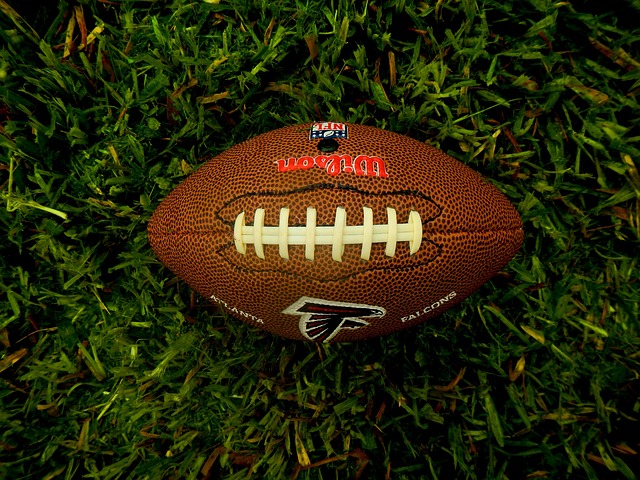Share This Article:

Case File
Spending the last chunk of his career playing for non-California teams, a former NFL player couldn't bring a claim for a cumulative injury in the Golden State. Simply Research subscribers have access to the full text of the case.
Case
Atlanta Falcons v. Workers' Compensation Appeals Board, No. G064622 (Cal. Ct. App. 10/07/25)
What Happened?
Wayne Gandy played in the National Football League from 1994 to 2009. Over that time, he played for the Los Angeles Rams, St. Louis Rams, Pittsburgh Steelers, New Orleans Saints, and Atlanta Falcons.
Six years after he retired, Gandy filed a workers' compensation claim in California, claiming a cumulative injury to multiple body parts. The workers' compensation judge issued an opinion finding that the Falcons were exempted from liability under California workers' compensation law.
On reconsideration, the Workers' Compensation Appeals Board determined that it had jurisdiction over Gandy's claim and rescinded the WCJ's opinion.
The Falcons appealed to court.
Rule of Law
Employees who have entered contracts of employment in California or who work regularly in California and are injured while working outside of California are covered under the state's workers' compensation law. However, employees hired outside of California and who do not regularly work in California generally are exempted from coverage, even when the employee is injured while working in California.
California has a special rule for cumulative injury claims by professional athletes that details, "With respect to an occupational disease or cumulative injury, a professional athlete who has been hired outside of this state and his or her employer shall be exempted from the provisions of this division while the professional athlete is temporarily within this state doing work for his or her employer."
Workers' Comp 101: A professional athlete is "temporarily within" California if she performs less than 20% of her duty days in California during the 365 consecutive days immediately preceding the last day of work for that employer in California.
A related exemption provides that all of a professional athlete's employers in his or her last year of work as a professional athlete are exempt unless:
(1) The athlete has, over the course of his or her career, worked for two or more seasons for a California-based team or worked 20% or more of his or her duty days either in California or for a California-based team, and
(2) The athlete has worked for fewer than seven seasons for any team or teams other than a California-based team or teams.
What the Court Said
The court found that the Falcons were exempted, noting that Gandy's last day of work for the Falcons in California was a game against the San Diego Chargers in 2008. In the 365 days preceding that date, Gandy's total duty days included for games and at least 250 practice days. None of the practices and only one of the games during that stretch was in California.
Additionally, the fact that Gandy signed and contract and played for the L.A. Rams didn't change the outcome.
"He was employed for 15 seasons, only one of which was in California with a California based team, and he worked fewer than 20% of his duty days in California or for a California-based team," the court wrote. "Therefore, [California law] exempts both Gandy and the Falcons."
What's the Difference? In Bowen v. Workers' Comp. Appeals Bd., 73 Cal. App. 4th 15 (Cal. Ct. App. 1999), a professional baseball player who was a California resident and signed the contract in California suffered an injury in Florida while playing for a minor league team owned by the Florida Marlins was covered under California workers' compensation law. The court in Gandy's case explained that the Bowen case would have controlled if Gandy's career ended after his seasons with the Rams. "Instead, his career continued for many years with other, non-California teams under contracts entered in other states, distinguishing his situation from that in Bowen."
Thus, the court found that the Falcons were exempted from California's workers' compensation law in connection with Gandy's claimed cumulative injury.
Verdict: The WCAB opinion was annulled, and the case was remanded.
Takeaway
If all the employers in the last year of an athlete’s career are exempt, the athlete’s career is not governed by California worker’s compensation law unless the athlete satisfies two conditions: (1) he or she spent either two or more seasons or 20 % of his or her total career working in California or for a California-based team; and (2) he or she spent fewer than seven total seasons working for any non-California team or teams.
AI california case file caselaw case management case management focus claims compensability compliance compliance corner courts covid do you know the rule employers exclusive remedy florida glossary check Healthcare hr homeroom insurance insurers iowa leadership medical NCCI new jersey new york ohio pennsylvania roadmap Safety safety at work state info tech technology violence WDYT west virginia what do you think women's history women's history month workers' comp 101 workers' recovery Workplace Safety Workplace Violence
Read Also
About The Author
About The Author
-
Frank Ferreri
Frank Ferreri, M.A., J.D. covers workers' compensation legal issues. He has published books, articles, and other material on multiple areas of employment, insurance, and disability law. Frank received his master's degree from the University of South Florida and juris doctor from the University of Florida Levin College of Law. Frank encourages everyone to consider helping out the Kind Souls Foundation and Kids' Chance of America.
More by This Author
Read More
- Mar 01, 2026
- Chris Parker
- Mar 01, 2026
- Frank Ferreri
- Feb 28, 2026
- Chriss Swaney
- Feb 28, 2026
- Chris Parker
- Feb 28, 2026
- Chris Parker
- Feb 27, 2026
- Liz Carey




